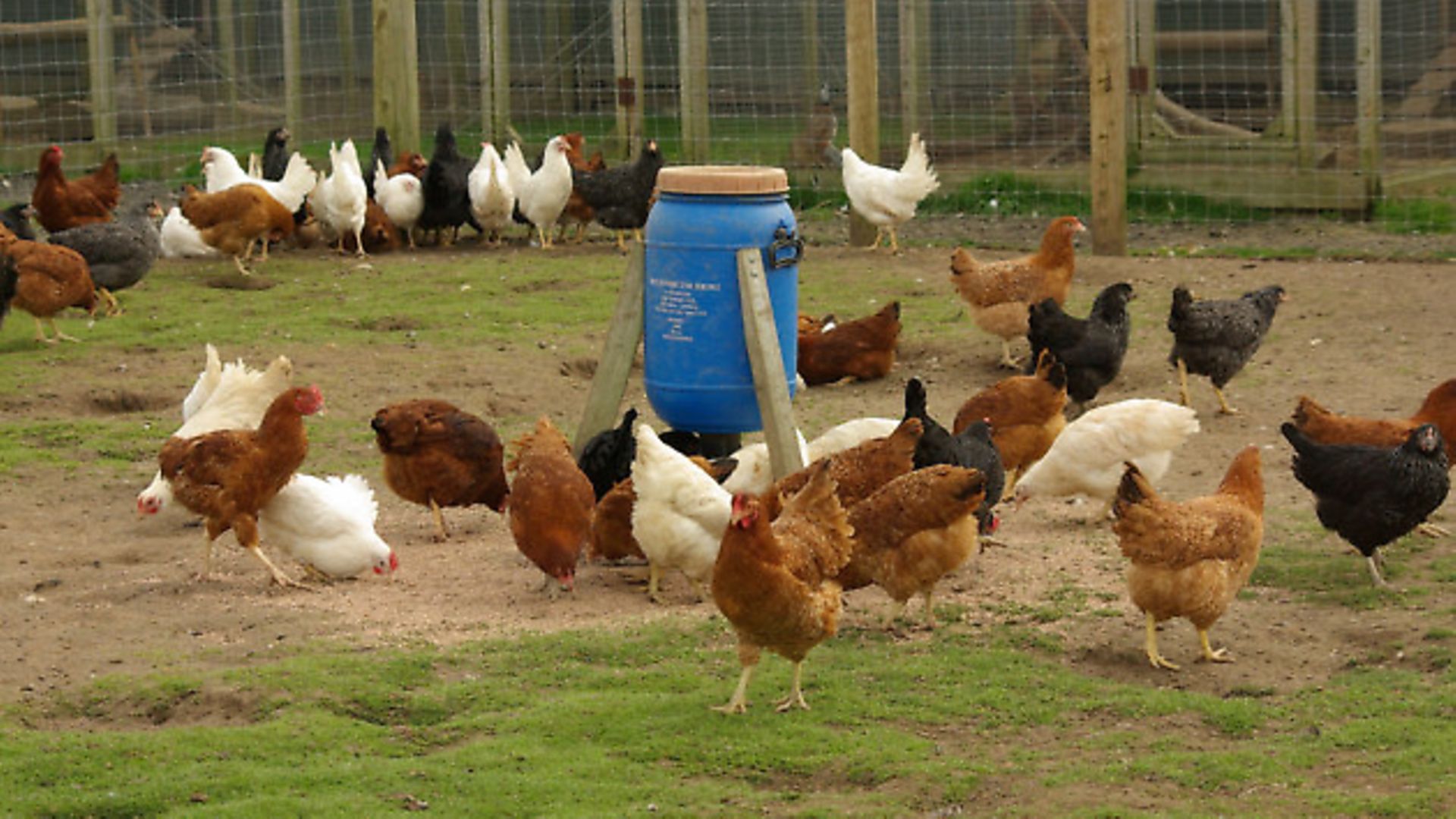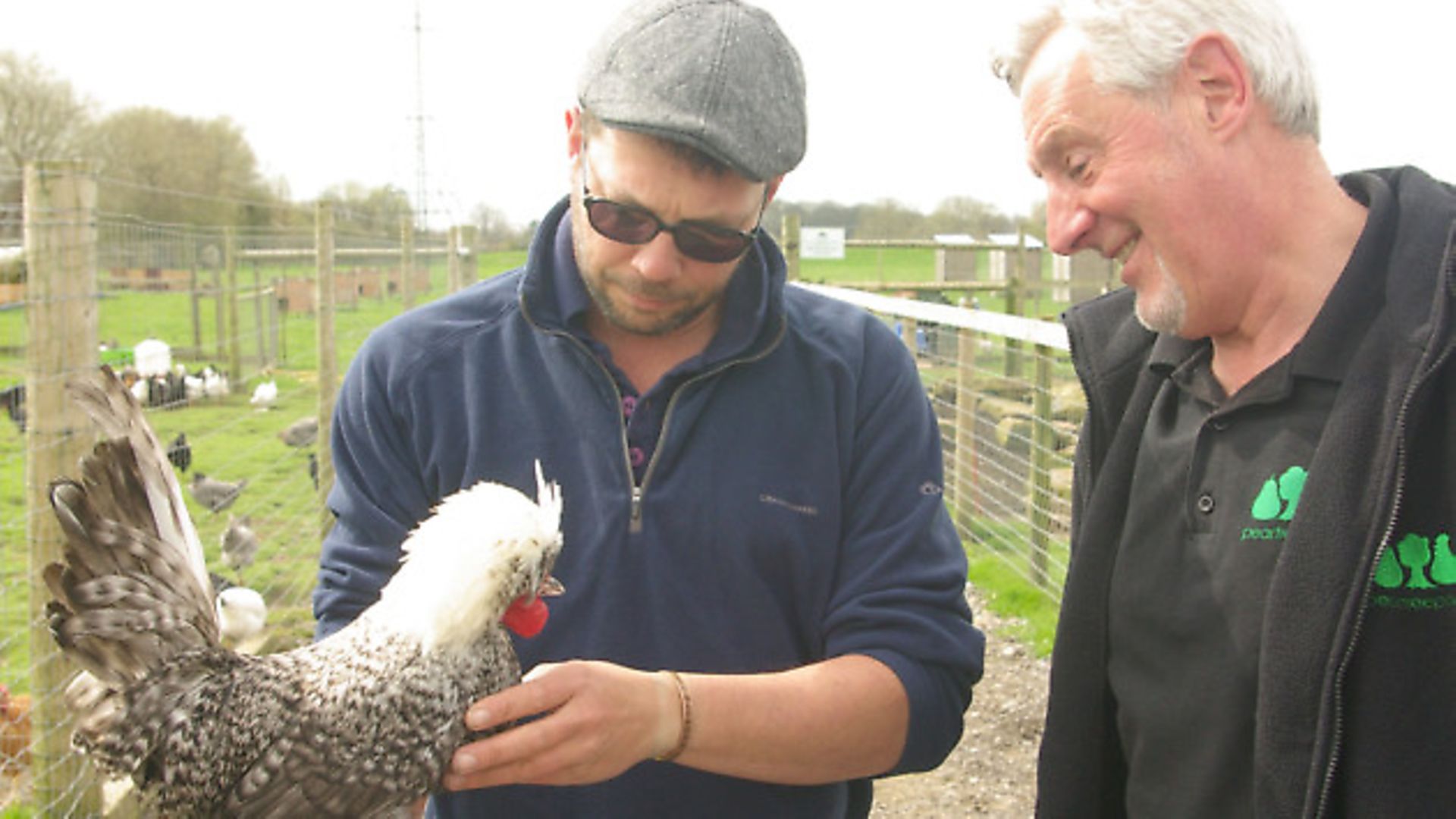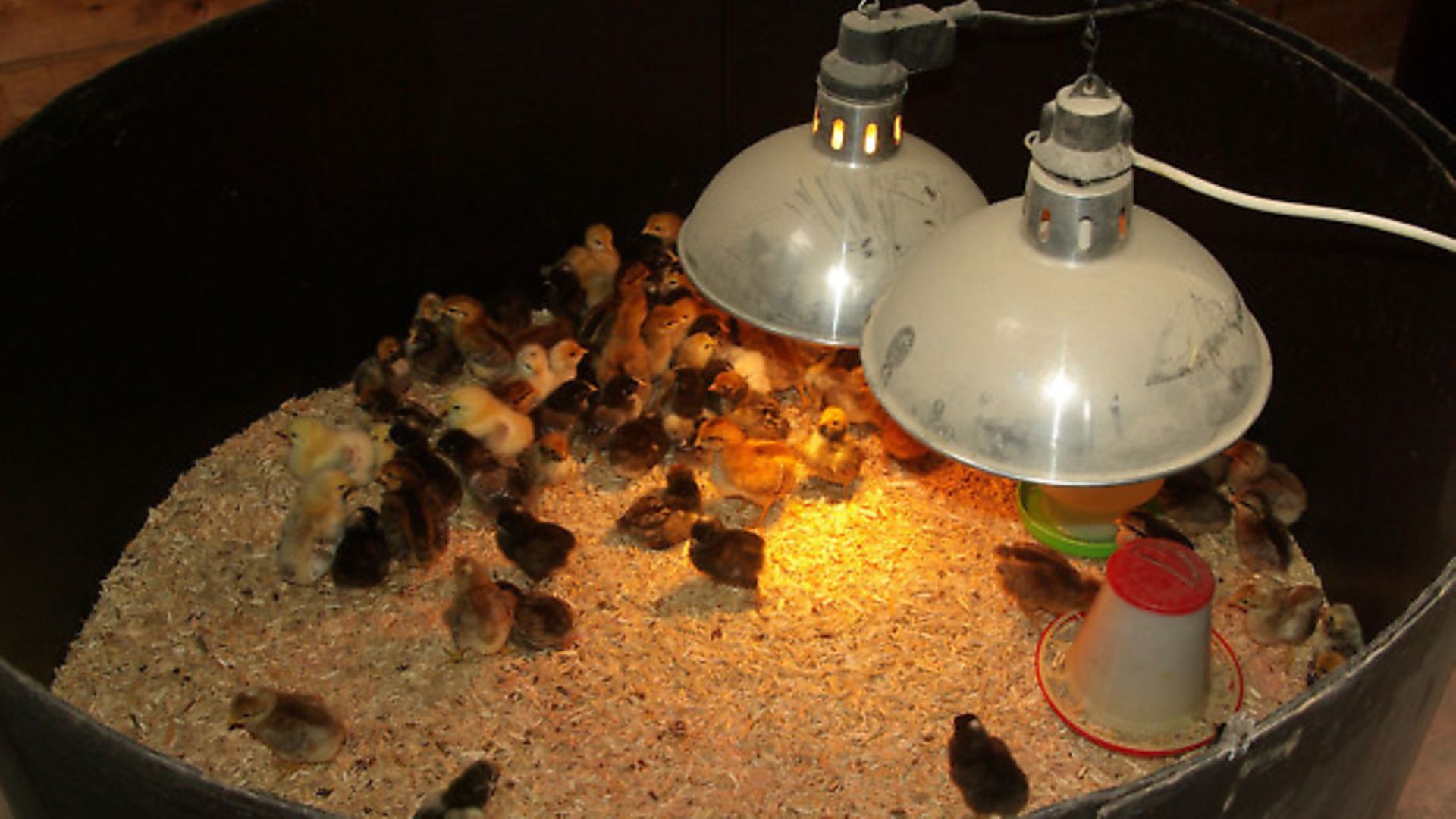Poultry Pals Grant Brereton and Andy Cawthray are visiting key people in the ‘scene’. This month they take a trip to Pear Tree Poultry in Lancashire

Ken Rigby, an accountant by trade, has a passion for poultry that is evident from the moment you set foot on his impressive set-up in Garstang, near Preston. Pear Tree Poultry is a successful business that supplies the local area with rare and pure breeds as well as hybrids. This month the Pals paid him a visit…
Grant says
I have known and worked with Pear Tree Poultry for a few years; they sponsored my seminar in 2013 and I was always aware that they had very high standards. This is reinforced when walking around the pens and grassy paddocks on their enviable site.

Ken and Pear Tree Poultry are professional in every respect: all pens are labelled, the housing is top-notch and all the birds are healthy. All staff have a real interest in their work and are also studying / have studied at the local agricultural college. There’s no point applying for a job here if you haven’t got a passion for hens!
When walking round the pens, it’s difficult to believe that there’s no entry fee because there is certainly plenty to see. The onsite shop, too, is full of poultry essentials and an interesting browse for any hen-keeper.
I was very impressed personally with chick-rearing process in place – from the collection of eggs to the incubator room, day-old chick brooders and then separate building for growers where they adjust to having no heat before going outside. This building was very attractive, well-organised and inspirational for anyone with a passion for poultry.
It was interesting to go through the birds and observe the comb differences in males and females at only a few weeks old.

Ken also showed us his training room where he runs a multitude of courses throughout the season, and these are very reasonably priced: from hatching and incubation through to basic husbandry and care. The onsite signs which adorn this building and Pear Tree Poultry in general, are very informative and well-thought-out.
We had a look at some of Ken’s pure breeds and he spoke of the difficulty between trying to conserve some of the rare types, while making them productive at the same time. It was good to see that he had some quality specimens on site, some descendants of which have gone on to be successful in the show circuit.
The hybrids are a very reasonable £15 each and are available in a range of egg colour options.
Andy says
It was great to find myself heading northwards with Grant to visit Ken at Pear Tree Poultry as it’s a place I’ve been wanting to visit for some time. I’ve known of Pear Tree Poultry probably since it first appeared as a going concern about six years ago. It is in a field beside a garden centre.
The garden centre is a huge place drawing in crowds of people year round and every day too. We arrived on a Friday morning in April and the car park was already half full! The key, though, for Ken and his crew of assistants is that the profile of client attracted to the garden centre complex marries up very well with the profile of the clients Pear Tree Poultry aims to attract. “Poultry are the new rabbits,” said Ken, and he’s not wrong. They do make for an interesting pet. “We do need to stock a good range of pure breeds and hybrids”, Ken told me. “But this is primarily because we know how important it is to tailor the birds we stock to the needs of our clients. Not everyone is interested in the rare breeds and some people are just looking for egg layers so we need to make sure we can provide a range.”
It’s very true and something as a small-scale breeder I do agree with. I’m a great advocate of the breeding of pure breeds simply because it’s vital that the heritage breeds are conserved and not lost forever. However, for many people, myself included, the interest in such breeds evolved from initially owning a flock of cross breeds and hybrids. This isn’t to say that Ken doesn’t have his personal indulgences: “Appenzellers”, he said. “Not everyone’s cup of tea, quite flightly, good layers but definitely not pets. However, you’ll never operate a profitable poultry business if Appys were the only breed you stocked.”
He’s not wrong either. If you are considering taking your hobby a step further and operating it as money-making venture, then no matter what scale you intend to be, you need to be conscious that there needs to be a balance to ensure it doesn’t simply become a more expensive hobby, but becomes something that is commercially viable.
Image(s) provided by:
Archant
Archant
Archant







